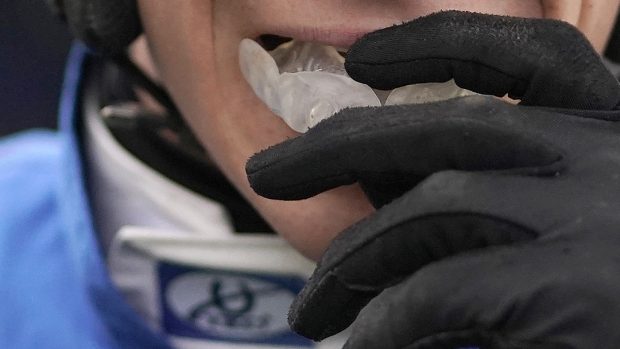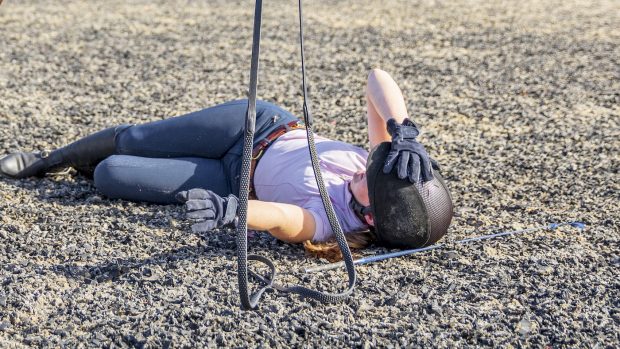A pin-prick concussion blood test could be on the market as soon as 2019.
Researchers at the University of Geneva (UNIGE), in collaboration with hospitals in Barcelona, Madrid and Seville, have developed a small device that can diagnose mild brain trauma from a single drop of blood.
The research involved identifying biomarkers in the blood that increase when a person has experienced a brain trauma.
“Our idea was to find a way to do a quick exam that would allow, during a boxing match or football for example, to say if the athlete can return to the field or if his condition requires hospitalisation,” said Jean-Charles Sanchez, a professor at UNIGE’s department of internal medicine of specialties and the centre for biomarkers.
“[This is] the opposite of a CT scan, [which is] a test that lasts a long time and cannot be done anywhere.”
The nature of this new test means that unlike a CT scan, it is small enough to be taken anywhere and can be done quickly.
When someone sustains a brain injury, damaged cells release proteins, which increases the amount of these present in their blood.
The researchers isolated four molecules that indicated the presence of a slight traumatic brain injury.
Professor Sanchez’s team has now developed a rapid diagnostic test, called TBIcheck, which is inspired by pregnancy tests.
By placing a single drop of blood on the stick, a patient will know in 10 minutes if they are likely to have sustained a mild trauma.
“If a band appears, the injured [person] must go for a CT scan, if there is nothing, he can return home safely,” he added.
Article continues below…
You might also be interested in:

Would you know if someone was suffering from concussion after a fall?
This weekend (16-17 September 2017) is the eighth annual International Helmet Awareness Day, and to mark the occasion we take

Concussion: are women more at risk? *H&H VIP*
Concussion is the most common form of head injury in the UK, and recent studies have thrown up questions about

New British Eventing rule to eliminate riders after falls
The rule will apply from the start of the 2018 season
The results were published in the journal Plos One, and there are plans to market the device next year with the start-up company ABCDx.
“We are preparing an even better TBIcheck, which will send home 50% of patients, but which requires an increase in the sensitivity of the [part of the device] that receives the blood,” added Professor Sanchez.
The company’s ultimate goal is to market biomarkers that can also diagnose stroke and aneurysms.
Research into biomarkers with the potential for developing a pitch-side test has been ongoing for several years and could have real benefits for riders. The risk nature of the sport means equestrians are at particular risk of head injuries. There are already very good cognitive tests used to help diagnose concussion, but these are not totally foolproof.
Recent research has shown the dangers of receiving a repeat injury while still recovering from a previous brain trauma and rules in many equestrian disciplines are designed to protect riders from this. A rapid test that can be done while at a competition could help give medics and riders a faster diagnosis and less time on the sidelines for those who are uninjured, while those who are receive the necessary treatment.
For all the latest news analysis, competition reports, interviews, features and much more, don’t miss Horse & Hound magazine, on sale every Thursday




